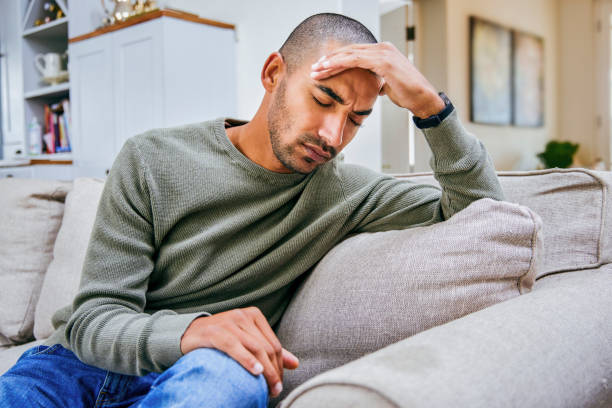Headaches are a common health problem that can be caused by a variety of factors, including stress, lack of sleep, dehydration, and eye strain. However, when a headache becomes particularly intense or persistent, it may indicate a more serious underlying issue. In this article, we will discuss the symptoms of a bad headache and the various treatment options available.
Symptoms of a Bad Headache
A bad headache can be characterized by its intensity and duration, as well as the presence of additional symptoms. Some of the most common symptoms of a bad headache include:
Severe pain: The pain associated with a bad headache is typically more intense and persistent than a regular headache. It may be described as throbbing, pulsing, or constant.
Nausea and vomiting: A bad headache can cause feelings of nausea and even lead to vomiting.
Light sensitivity: Many people with a bad headache find that bright lights or sunlight make their headache worse.
Sound sensitivity: Loud noises or even normal conversations can cause discomfort and exacerbate a headache.
Visual disturbances: A bad headache can cause visual changes, such as blurring, double vision, or temporary blindness.
Neck pain: A bad headache can also be accompanied by neck pain or stiffness.
Dizziness: Some people with a bad headache experience dizziness or vertigo, making it difficult to maintain balance.
Treatment for a Bad Headache
The best treatment for a bad headache depends on the underlying cause. Some common treatments include:
Over-the-counter pain relievers: Over-the-counter pain relievers such as ibuprofen, aspirin, and acetaminophen can be effective for treating mild to moderate headaches.
Ice or heat therapy: Applying a cold pack or heating pad to the affected area can help reduce pain and relax tense muscles.
Hydration: Dehydration is a common cause of headaches, so drinking plenty of water and avoiding caffeine and alcohol can help prevent and treat headaches.
Relaxation techniques: Relaxation techniques such as deep breathing, yoga, and meditation can help reduce stress and prevent headaches.
Avoid triggers: If you know what triggers your headaches, try to avoid those triggers as much as possible. For example, if you experience headaches from spending too much time on the computer, take frequent breaks and practice good posture.
Prescription medications: If over-the-counter pain relievers are not effective, your doctor may prescribe a stronger medication, such as a triptan or an opiate.
Alternative treatments: Some people find relief from alternative treatments such as acupuncture, chiropractic care, or massage therapy.
Preventive measures: If you have frequent or severe headaches, your doctor may recommend preventive measures, such as daily medication or lifestyle changes, to reduce the frequency and severity of headaches.
In conclusion, a bad headache can be a sign of a more serious underlying condition and should be evaluated by a doctor. The best treatment for a bad headache depends on the underlying cause, but a combination of over-the-counter pain relievers, hydration, and relaxation techniques can often provide relief. If you experience frequent or severe headaches, it is important to discuss your symptoms with your doctor and work together to find the best treatment plan for you.

 Home
Home Health
Health Diet & Nutrition
Diet & Nutrition Living Well
Living Well More
More












